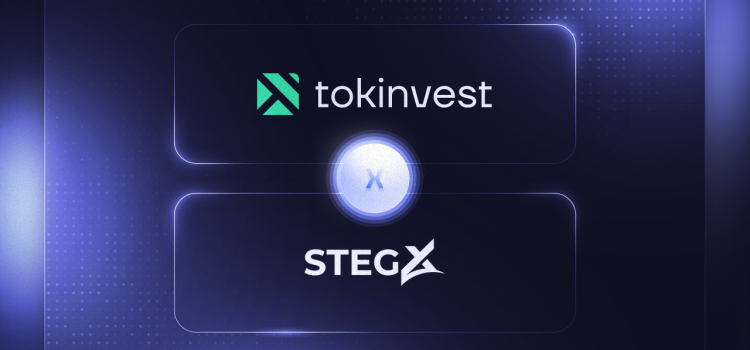
Tokinvest, a UAE regulated marketplace for real-world asset investing, and German based StegX, a platform for tokenized real assets based in Germany, have partnered to bridge tokenization between UAE and Germany. StegX has been collaborating with entities to bridge tokenization solutions with Singapore, and Latin America.
The collaboration aims to advance the global ecosystem of tokenized real-world assets (RWAs) by combining the regulatory strengths and technological capabilities of both entities. As per the press release, the partnership will provide investors with seamless access to tokenized assets across multiple markets, enhancing transparency, liquidity, and financial inclusion.
This partnership represents a significant step toward mainstream adoption of tokenized assets. By connecting Dubai, a global hub for virtual asset innovation, with Frankfurt, one of Europe’s premier financial centers, Tokinvest and StegX are creating a robust cross-border infrastructure that benefits both issuers and investors.
“This collaboration underscores our commitment to democratizing access to the world’s most exclusive assets,” said Scott Thiel, CEO and Co-Founder of Tokinvest. “StegX’s expertise in tokenization and their strong presence in Europe complement our vision to make high-quality investments more accessible. Together, we’re building a bridge for global investors to explore the future of tokenized real-world assets in a secure, regulated environment.”
Daniel Radwansky, CEO and Co-Founder of StegX, commented, “This partnership represents a significant milestone in advancing the adoption of tokenised real-world assets. By connecting Europe and the Middle East, we are creating new opportunities for investors and issuers alike, fostering a global ecosystem of innovation, transparency, and efficiency.”
Finally, the collaboration will support issuers in creating, listing, and trading tokenized assets, ranging from real estate and commodities to funds, with unparalleled security and compliance.
Germany is already far along when it comes to opening up to tokenization of real world assets. In December 2024, German fintech 21X, one of the four applicants for a blockchain trading infrastructure permit under the European Union’s DLT Pilot Regime, secured regulatory approval to launch a tokenization platform.
Granted by German financial supervisory authority, Bundesanstalt für Finanzdienstleistungsaufsicht (BaFin), the license enabled 21X to launch its exchange for tokenized financial instruments from its Frankfurt headquarters.
Additionally German based Cashlink Technologies also received a crypto custodian license from the German regulator. “With the combination of our license as a crypto securities registrar and the new crypto custody license, we offer a unique, comprehensive service offering around tokenized securities,” said Michael Duttlinger, CEO of Cashlink. “This strong regulatory foundation not only strengthens our market leadership as a neutral infrastructure provider for tokenized assets but also consistently drives forward the development of Capital Markets 2.0.”
SNC Insider’s recent market research has noted that the Tokenization Market was valued at USD 2.9 Billion in 2023 and is projected to reach USD 16.6 Billion by 2032, growing at a compound annual growth rate (CAGR) of 21.5% from 2024 to 2032.









